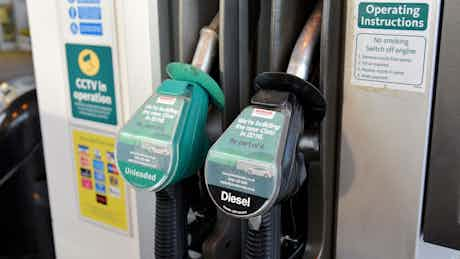Car changing is a big deal
Motorists could face a fuel duty rise in March 2026 as the UK government seeks to encourage EV adoption and offset declining fuel tax revenues.
Fuel duty is the tax built into the price you pay at the pump for petrol and diesel. It’s a major source of government income and directly affects how much it costs to fill up your car.
The current 5p per litre fuel duty cut – introduced in 2022 and extended in the 2024 Autumn Budget – is set to expire in less than a year. If no further extension is granted, petrol and diesel prices could jump by at least 5p per litre overnight.
What does this mean for drivers?
If you’re a driver relying on petrol or diesel, you could be paying more at the pump next spring. Experts say this could be the government’s way of nudging more people to switch to EVs before the 2030 deadline, when all new cars sold in the UK must be zero-emission.
While the 5p cut helped ease costs during the cost-of-living crisis, it has also led to lower fuel duty revenues for the Treasury. Government figures show that fuel duty brought in £24.7bn from April 2024 to March 2025 – down £200m from the year before, despite overall tax revenues rising.
Industry experts warn that relying on fossil fuels is becoming increasingly expensive, not just for the health of the planet but also for public finances.
A new motoring tax landscape is coming
Sheena McGuinness, an energy tax expert at accounting and auditing company RSM UK, said drivers should prepare for changes: “Come March 2026, fuel duty is expected to rise to help motivate the switch to EVs and meet the government’s ambitious zero-emission targets.”
With fuel duty making up nearly half of the UK’s total environmental tax revenue, its decline poses a big question: what replaces it?
For now, the government has ruled out road pricing, but experts stress that a long-term plan is needed to give drivers financial clarity – especially with EVs still more expensive up front.
Environmental taxes are already hitting drivers hard
Fuel duty alone raised £24.6bn in 2024 – accounting for 45% of all environmental taxes in the UK, according to data from the Office for National Statistics (ONS). However, many drivers are unaware of just how much they contribute, says Jack Cousens from the AA.
“Most drivers accept that driving petrol or diesel cars comes with some tax,” Cousens said. “But they’ll be shocked by how much they actually pay compared to the total.”
He also warned that local councils are introducing their own wave of stealth environmental charges. These include parking fees based on CO2 emissions, diesel surcharges, and workplace parking levies – all of which can hit low-income households the hardest, especially those driving older cars.
Support is needed to switch to EVs, not just pressure
While EV sales are growing, experts agree that more needs to be done to support the transition. With the 2030 ban on new petrol and diesel car sales fast approaching, incentives such as lower running costs, clearer infrastructure plans, and more accessible car pricing will be crucial.
So if you’re a driver thinking about your next car, the message is clear: expect rising costs for traditional fuel – and growing financial pressure to make the switch to electric sooner rather than later.
Car change? Carwow!
Looking for a new set of wheels? With Carwow you can sell your car quickly and for a fair price – as well as find great offers on your next one. Whether you’re looking to buy a car brand new, are after something used or you want to explore car leasing options, Carwow is your one stop shop for new car deals.
Click here to follow us on WhatsApp, where you can keep up-to-date with all the latest news, reviews, advice guides and videos.
